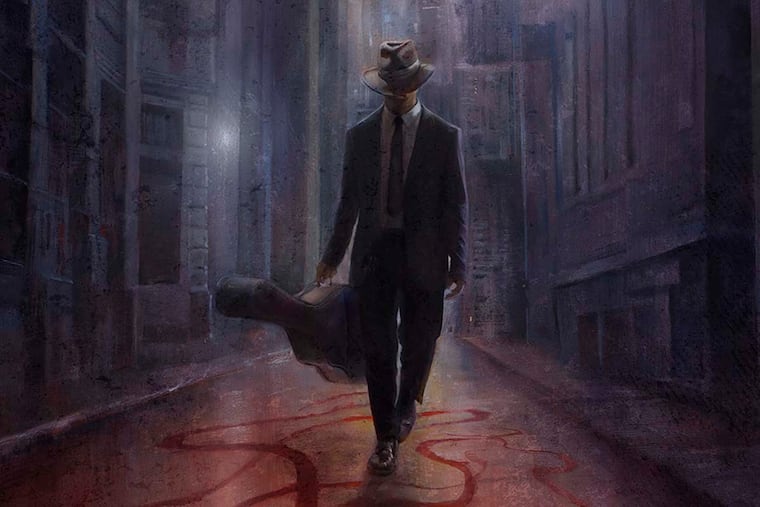'Ballad of Black Tom' Out-Lovecrafts Lovecraft
If anyone were going to update H.P. Lovecraft, it would be Victor LaValle. His fiction plays with - and often revels in - the tropes of horror, and his latest book, The Ballad of Black Tom, is a rousing reinvention of the Lovecraft story "The Horror at Red Hook." The major plot points are the same - the occult machinat

The Ballad
of Black Tom
By Victor LaValle
Tor.com. 160 pp. $12.99
nolead ends nolead begins
Reviewed by Ryan Teitman
nolead ends If anyone were going to update H.P. Lovecraft, it would be Victor LaValle.
His fiction plays with - and often revels in - the tropes of horror, and his latest book, The Ballad of Black Tom, is a rousing reinvention of the Lovecraft story "The Horror at Red Hook." The major plot points are the same - the occult machinations of a wealthy eccentric in 1920s New York - but LaValle focuses on a character of his own creation, a black guitarist and small-time hustler named Charles Thomas Tester.
Tester lives with his father in their Harlem apartment. As long as he can afford food and rent, Tester isn't too picky about the jobs he takes - even those involving matters beyond his earthly understanding. After delivering an arcane book to a mysterious woman in Queens, he is drawn into a wide-reaching plot that leads to an ancient horror.
Unlike Lovecraft's spongy prose, LaValle's sentences are sharp and direct, punctuated by Raymond Chandleresque metaphors. An old man's unruly hair is compared to "a dandelion's soft white blowball." A roll of cash is "as thick as the middle of a Burmese python." A sinister house is "like a tumor on the house of the dead."
LaValle also jettisons Lovecraft's well-known racism and xenophobia. When Tester walks the streets, he likens the experience to "being a drop of blood inside an enormous body that was waking up. Brick and mortar, elevated train tracks, and miles of underground pipe, this city lived; day and night it thrived."
Tester understands how people see, and how people see him, especially when it comes to race. As he makes his trek from Harlem to Queens, he knows that "[B]ecoming unremarkable, invisible, compliant - these were useful tricks for a black man in an all-white neighborhood." Even though set nearly a century ago, a number of scenes in the book - particularly Tester's tense, racially charged run-ins with police throughout the story - read as startlingly current.
Even without the fine prose, artful characterization, and incisive commentary, The Ballad of Black Tom would still be a gripping horror story. The book moves briskly and has plenty of action (including a few moments of surprising gore). But good horror is par for the course for LaValle. His book's achievement is how it unveils countless dimensions beneath the surface of Lovecraft's story - a feat worthy of LaValle's eldritch writing powers.
Ryan Teitman is a poet and the author of "Litany for the City."